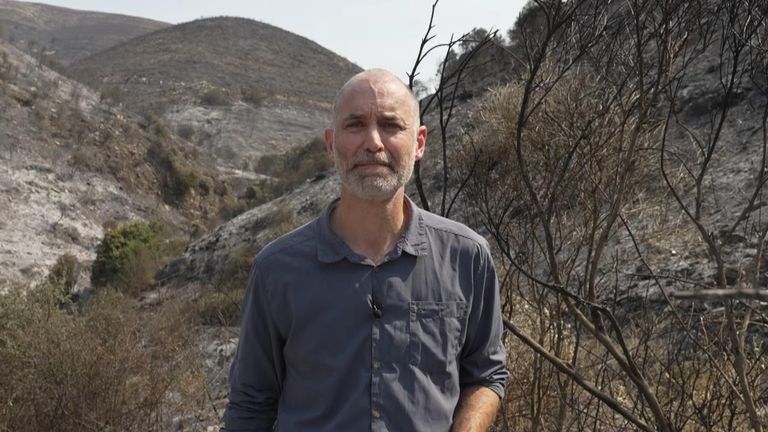Scientists warn deadly extreme heat 'rapidly on the rise' - and predict how often heatwaves will now occur
Experts say heatwaves could become a regular occurrence in Europe, North America and China. Experts are calling for governments to better prepare for heatwaves in the future.

The July heatwaves in Europe and North America would have been virtually impossible without climate change, according to a new study.
Scientists also found that the July heatwave in China was 50 times more likely because of greenhouse gas emissions.
Temperatures in parts of all three regions hit 45C in early July, causing widespread disruption and posing a serious health risk.
But in today's warmer climate, analysis by scientists from the World Weather Attribution (WWA) found these temperatures are no longer unusual.
Their findings, which have not yet been peer-reviewed, showed that heatwaves like those experienced in July can now be expected to occur once every 15 years in North America, once every 10 years in Europe and once every five years in China.
Wildfires rage across Europe - live updates
The scientists warned that if temperature rise reaches 2C, events like the current heatwave will become even more frequent, occurring every two to five years.
Without global warming, the temperatures in Europe and North America would have been almost impossible, while the heatwave in China would have been expected only once every 250 years.
The WWA's results were derived using rapid attribution analysis, a relatively new approach.
Attribution analysis doesn't allow scientists to say if a particular extreme weather event was caused by climate change.
But it does allow them to quantify if climate change made a particular event more likely to occur and if it made it more severe, by comparing current events with historical data and climate models.
The WWA found that the release of carbon dioxide into the atmosphere by burning fossil fuels also increased the temperature of the July heatwaves.
The European heatwave was 2.5C hotter, the North American heatwave 2C hotter and the Chinese heatwave 1C hotter because of climate change.
"The result of this attribution study is not surprising," said Friederike Otto, report author and senior lecturer in climate science at the Grantham Institute for Climate Change.
"The world hasn't stopped burning fossil fuels, the climate continues to warm and heatwaves continue to become more extreme. It is that simple."
"It is absolutely critical that governments legislate fossil fuel phase out at this year's COP climate conference," she added.
While the full impact of this year's heatwaves won't be known for some time, 61,000 people died of heat-related causes in Europe last summer.
Experts say governments must do more to prepare for future heatwaves.
"We need a cultural shift in the way we think about extreme heat," said Julie Arrighi, report author and director at the Red Cross Red Crescent Climate Centre.
"Extreme heat is deadly and rapidly on the rise. It is crucial to scale warning systems, heat action plans and investments in long-term adaptation measures.
"This includes urban planning and bolstering resilience of critical systems such as health, electricity, water and transport."
On Sunday the housing secretary Michael Gove called for a relaxation of some net zero measures in the UK.
But Gareth Redmond-King, head of the international programme at the Energy and Climate Intelligence Unit said the findings by the WWA showed the need to make rapid progress.
"As we keep burning fossil fuels, we add to the 1.1C+ of heating we've already caused, fuelling ever worse climate impacts," he said.
"It won't stop until we cut emissions to net zero.
"And that won't happen without, amongst other things, a swift transition to electric vehicles and heat pumps, powered by more wind and solar generation; politicians who attempt to delay these measures are locking in more of these extremes."
-sky news







